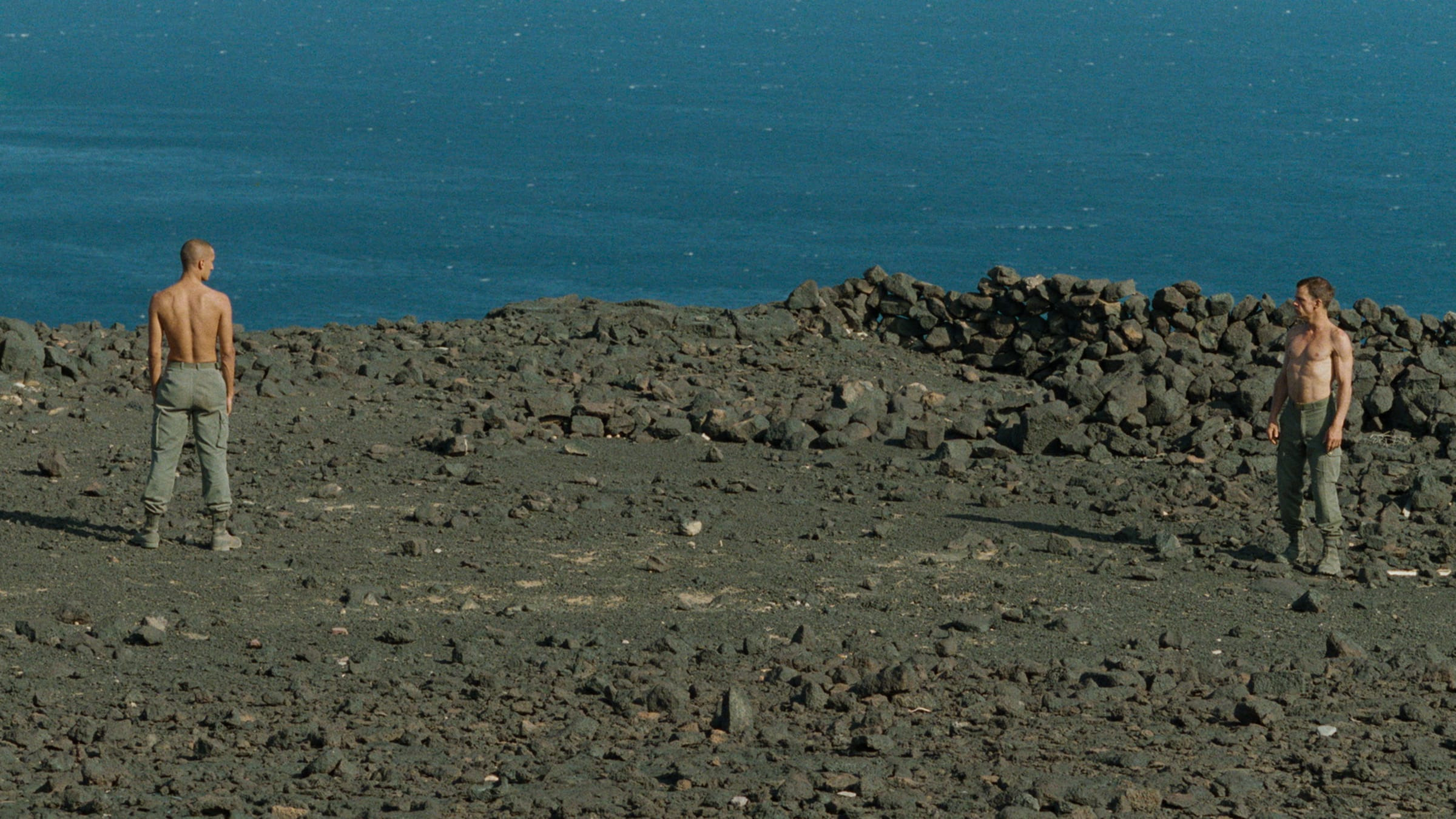RELATED ARTICLE
Beau travail: A Cinema of Sensation

Share
When Claire Denis’s Beau travail (1999) first appeared on American screens, the critic Stephen Holden used a striking phrase to capture its embracing of bold opposites: “voluptuous austerity.” His characterization, widely quoted since, illuminates the film on many levels, and also forecasts something important about its reception to come. Quickly, Beau travail acquired a passionate following in film culture, was voted best film of the year in the Village Voice critics’ poll in 2000, when it had its U.S. theatrical run—only the first of many surveys on which it has featured prominently—and inspired an outpouring of writing in internet cinephile spaces, film magazines, and academic journals alike. This wide-ranging response, from disparate corners, perfectly suits this work that holds in balance a rich and resonant set of tensions and contrasts.
One of these tensions can be found in the origins of the project. Commissioned by the French television channel ARTE to make a film for a series on “foreign lands,” Denis gently bent the rules in order to take up an expanded theme—that of foreignness. She set the film in the present day and centered it on a group of French Foreign Legionnaires stationed at a coastal outpost in the former colony of Djibouti, in East Africa. She wished to explore not only the experience of being a foreigner in an unfamiliar land but also what it meant to be (in her words) “a foreigner to oneself.”
This idea of nonbelonging, in both an exterior and an interior sense, is a theme and a feeling that traverses Denis’s cinema, and is shared by the filmmaker herself. Born in France, she was raised in several countries in Africa, where her father served as a colonial official. Before she made her first feature film, Chocolat (1988)—relatively late, at forty-one—she worked as assistant director to (among others) Wim Wenders, who has had a famous affinity for America, its culture, and its landscape. While traveling through the American Southwest with Wenders as they scouted locations for Paris, Texas (1984), Denis recalls wondering if there was such a thing as a landscape that she might call her own. Realizing it was neither America nor France but Africa, she went on to shoot Chocolat in Cameroon. Beau travail—the title can mean both “good work” and “beautiful work”—took her back to Africa to shoot a feature there for the first time since her debut. The fifth of the thirteen full-length fiction films Denis has made so far—spanning an assortment of genres, settings, and tones—it is the work that continues to be her most celebrated.
At the heart of Beau travail lies a male triangle. Sergeant Galoup (an electrifying Denis Lavant), part of a Foreign Legion regiment stationed in Djibouti, serves under commanding officer Forestier (Michel Subor), for whom he has a deep admiration and fondness. A young and popular new recruit, Sentain (Grégoire Colin), begins to attract the attention of Commandant Forestier after performing an intrepid rescue following a helicopter crash. Galoup, consumed with jealousy, unfairly punishes Sentain by banishing him to the desert with a faulty compass. Near death, Sentain is rescued and cared for by native Djiboutians; it is unclear whether he survives. This story is told in flashbacks by Galoup, who has since been expelled from the legion and lives in Marseille.
The process Denis used to synthesize the various source materials for the film harbored another kind of creative tension. Having at one time been struck by Herman Melville’s accounts of masculine life and experience, Denis reached first for his poems and then his novella Billy Budd, Sailor, from which she extracted the central narrative device of the triangular relationship situated amid an all-male group. She also chose passages from Benjamin Britten’s opera Billy Budd to accompany the legionnaires’ elaborate military exercises, which were themselves stylized and choreographed by ballet dancer Bernardo Montet. Finally, by naming the commanding officer Bruno Forestier and casting Subor in the role, she established a direct link to Jean-Luc Godard’s Le petit soldat (1963), which features the same actor playing an army deserter with the same name. She imagined her film to be an oblique continuation of Godard’s, nearly four decades later. Denis’s cowriter, Jean-Pol Fargeau, began the writing process by penning Galoup’s journals, a memoir of sorts that drives the flashbacks and kicks off the narrative.
“The power of Denis’s cinema flows from the fact that it fully addresses both mind and body: the whole spectator.”

“As a woman filmmaker exploring an all-male group and its dynamics from the outside, Denis treats masculinity in an unusual and thoughtfully ambiguous fashion.”






